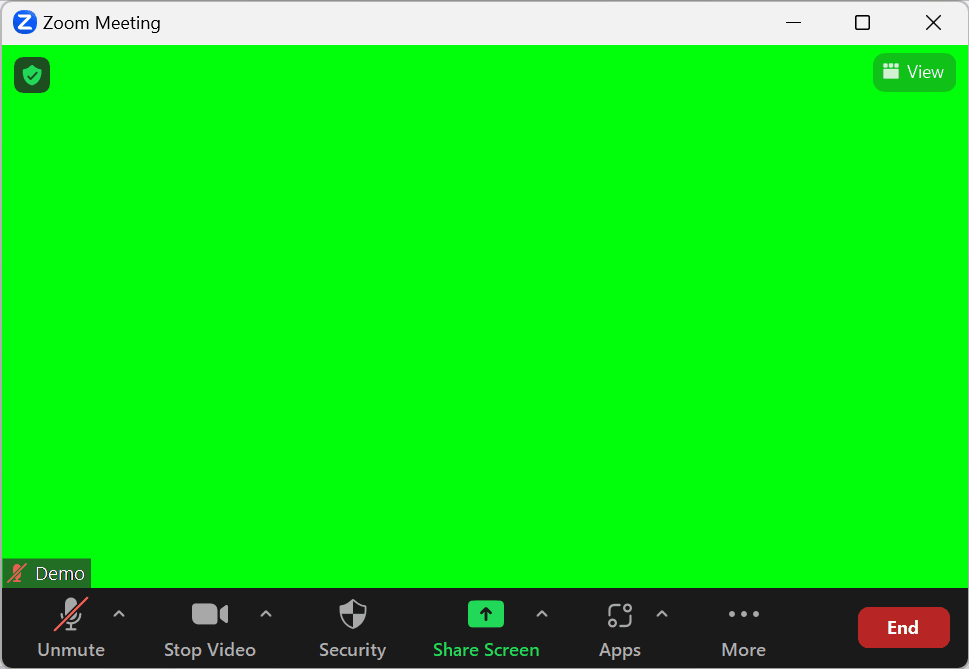
Security News
Open Source Maintainers Feeling the Weight of the EU’s Cyber Resilience Act
The EU Cyber Resilience Act is prompting compliance requests that open source maintainers may not be obligated or equipped to handle.
pyvirtualcam sends frames to a virtual camera from Python.
import colorsys
import numpy as np
import pyvirtualcam
with pyvirtualcam.Camera(width=1280, height=720, fps=20) as cam:
print(f'Using virtual camera: {cam.device}')
frame = np.zeros((cam.height, cam.width, 3), np.uint8) # RGB
while True:
h, s, v = (cam.frames_sent % 100) / 100, 1.0, 1.0
r, g, b = colorsys.hsv_to_rgb(h, s, v)
frame[:] = (r * 255, g * 255, b * 255)
cam.send(frame)
cam.sleep_until_next_frame()

pyvirtualcam uses the first available virtual camera it finds (see later section).
For more examples, including using different pixel formats like BGR, or selecting a specific camera device, check out the examples/ folder.
See also the API Documentation.
This package works on Windows, macOS, and Linux. Install it from PyPI with:
pip install pyvirtualcam
pyvirtualcam relies on existing virtual cameras which have to be installed first. See the next section for details.
OBS includes a built-in virtual camera for Windows (since 26.0).
To use the OBS virtual camera, simply install OBS.
Note that OBS provides a single camera instance only, so it is not possible to send frames from Python to the built-in OBS virtual camera, capture the camera in OBS, mix it with other content, and output it again to OBS' built-in virtual camera. To achieve such a workflow, use another virtual camera from Python (like Unity Capture) so that OBS' built-in virtual camera is free for use in OBS.
Unity Capture provides a virtual camera originally meant for streaming Unity games. Compared to most other virtual cameras it supports RGBA frames (frames with transparency) which in turn can be captured in OBS for further processing.
To use the Unity Capture virtual camera, follow the installation instructions on the project site.
OBS includes a built-in virtual camera for macOS (since 26.1).
NOTE: Starting with pyvirtualcam 0.10, only OBS 28 or higher is supported. Install an older version if you need OBS 26 / 27 support.
HELP WANTED: pyvirtualcam requires code updates to run on macOS 14 and higher. If you own a Mac, consider contributing: https://github.com/letmaik/pyvirtualcam/issues/111#issuecomment-1763398540.
To use the OBS virtual camera, follow these one-time setup steps:
Note that OBS provides a single camera instance only, so it is not possible to send frames from Python, capture the camera in OBS, mix it with other content, and output it again as virtual camera.
pyvirtualcam uses v4l2loopback virtual cameras on Linux.
To create a v4l2loopback virtual camera on Ubuntu, run the following:
sudo apt install v4l2loopback-dkms
sudo modprobe v4l2loopback devices=1
For further information, see the v4l2loopback documentation.
git clone https://github.com/letmaik/pyvirtualcam --recursive
cd pyvirtualcam
pip install .
These instructions are experimental and support is not provided for them. Typically, there should be no need to build manually since wheels are hosted on PyPI.
You need to have Visual Studio installed to build pyvirtualcam.
In a PowerShell window:
$env:USE_CONDA = '1'
$env:PYTHON_VERSION = '3.7'
$env:PYTHON_ARCH = '64'
$env:NUMPY_VERSION = '1.14'
git clone https://github.com/letmaik/pyvirtualcam --recursive
cd pyvirtualcam
powershell .github/scripts/build-windows.ps1
The above will download all build dependencies (including a Python installation)
and is fully configured through the four environment variables.
Set USE_CONDA = '0' to build within an existing Python environment.
FAQs
Send frames to a virtual camera
We found that pyvirtualcam demonstrated a healthy version release cadence and project activity because the last version was released less than a year ago. It has 1 open source maintainer collaborating on the project.
Did you know?

Socket for GitHub automatically highlights issues in each pull request and monitors the health of all your open source dependencies. Discover the contents of your packages and block harmful activity before you install or update your dependencies.

Security News
The EU Cyber Resilience Act is prompting compliance requests that open source maintainers may not be obligated or equipped to handle.

Security News
Crates.io adds Trusted Publishing support, enabling secure GitHub Actions-based crate releases without long-lived API tokens.

Research
/Security News
Undocumented protestware found in 28 npm packages disrupts UI for Russian-language users visiting Russian and Belarusian domains.